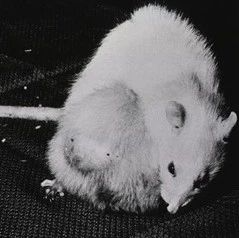加拿大研究人员日前在学术期刊Cell上发表研究报告说,他们在实验中发现,抗精神病药物甲硫达嗪可使癌症干细胞“改邪归正”,成为正常细胞,而药物使用不会对其他正常的人体细胞产生副作用。研究人员称,基于这项研究成果,有望研发出新的癌症治疗药物。

癌症干细胞被认为是很多癌症的“罪魁祸首”,传统的癌症疗法如化疗不仅会杀死癌症干细胞,同时也会伤害人体其他正常细胞,从而导致脱发、恶心和贫血等副作用,而且病症还容易复发。
由于癌症干细胞有别于普通干细胞,并不容易分化成稳定且不会分裂的细胞类型。来自加拿大麦克马斯特大学的研究人员利用这种差异性对大量药剂进行筛选,从中找到了近20种可对抗癌症干细胞的药物,其中抗精神病药物甲硫达嗪的实验效果最为理想。
他们在实验中发现,甲硫达嗪虽然不会直接杀灭癌症干细胞,但能促使它们分化成稳定的正常细胞类型,从而消除这种干细胞。研究报告的主要作者巴蒂亚说,甲硫达嗪通过把癌症干细胞转化成正常细胞类型,实现了消除癌症干细胞的目的,这一过程中不会对其他正常细胞产生副作用,这显然更有利于癌症病人的治疗和康复。
巴蒂亚说,他们下一步将在临床试验中检测甲硫达嗪的实际疗效,尤其是对那些经化疗后复发的急性骨髓性白血病病人。

 Identification of Drugs Including a Dopamine Receptor Antagonist that Selectively Target Cancer Stem Cells
Identification of Drugs Including a Dopamine Receptor Antagonist that Selectively Target Cancer Stem Cells
Eleftherios Sachlos, Ruth M. Risueño, Sarah Laronde, Zoya Shapovalova, Jong-Hee Lee, Jennifer Russell, Monika Malig, Jamie D. McNicol, Aline Fiebig-Comyn, Monica Graham, Marilyne Levadoux-Martin, Jung Bok Lee, Andrew O. Giacomelli, John A. Hassell, Daniela Fischer-Russell, Michael R. Trus, Ronan Foley, Brian Leber, Anargyros Xenocostas, Eric D. Brown, Tony J. Collins, Mickie Bhatia
Selective targeting of cancer stem cells (CSCs) offers promise for a new generation of therapeutics. However, assays for both human CSCs and normal stem cells that are amenable to robust biological screens are limited. Using a discovery platform that reveals differences between neoplastic and normal human pluripotent stem cells (hPSC), we identify small molecules from libraries of known compounds that induce differentiation to overcome neoplastic self-renewal. Surprisingly, thioridazine, an antipsychotic drug, selectively targets the neoplastic cells, and impairs human somatic CSCs capable of in vivo leukemic disease initiation while having no effect on normal blood SCs. The drug antagonizes dopamine receptors that are expressed on CSCs and on breast cancer cells as well. These results suggest that dopamine receptors may serve as a biomarker for diverse malignancies, demonstrate the utility of using neoplastic hPSCs for identifying CSC-targeting drugs, and provide support for the use of differentiation as a therapeutic strategy.






